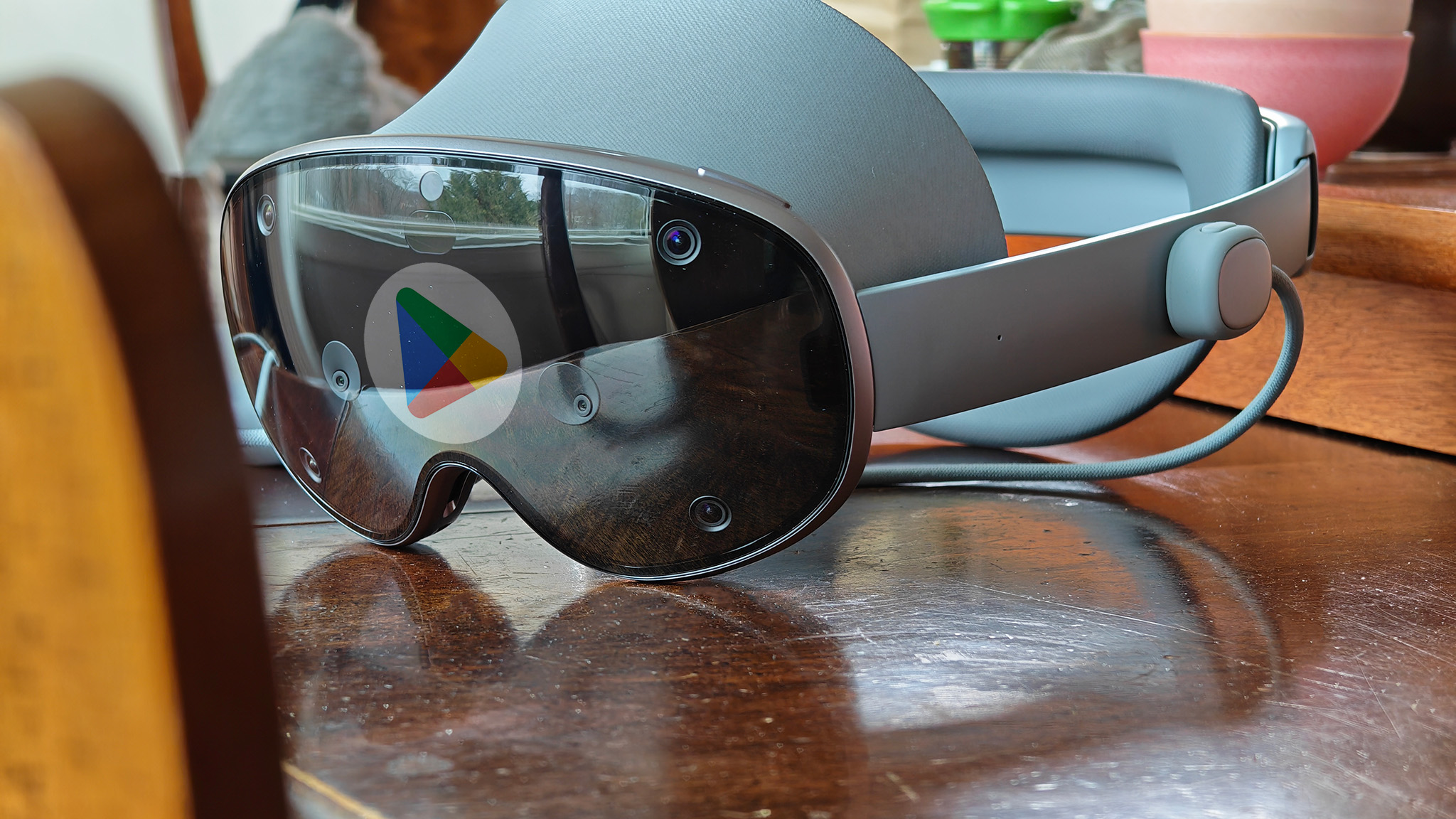The new Meta Store could bring the Quest 2 even further into the mainstream
Meta needs everyday people to buy into the Metaverse; its spin on the Apple Store could help them pull it off.
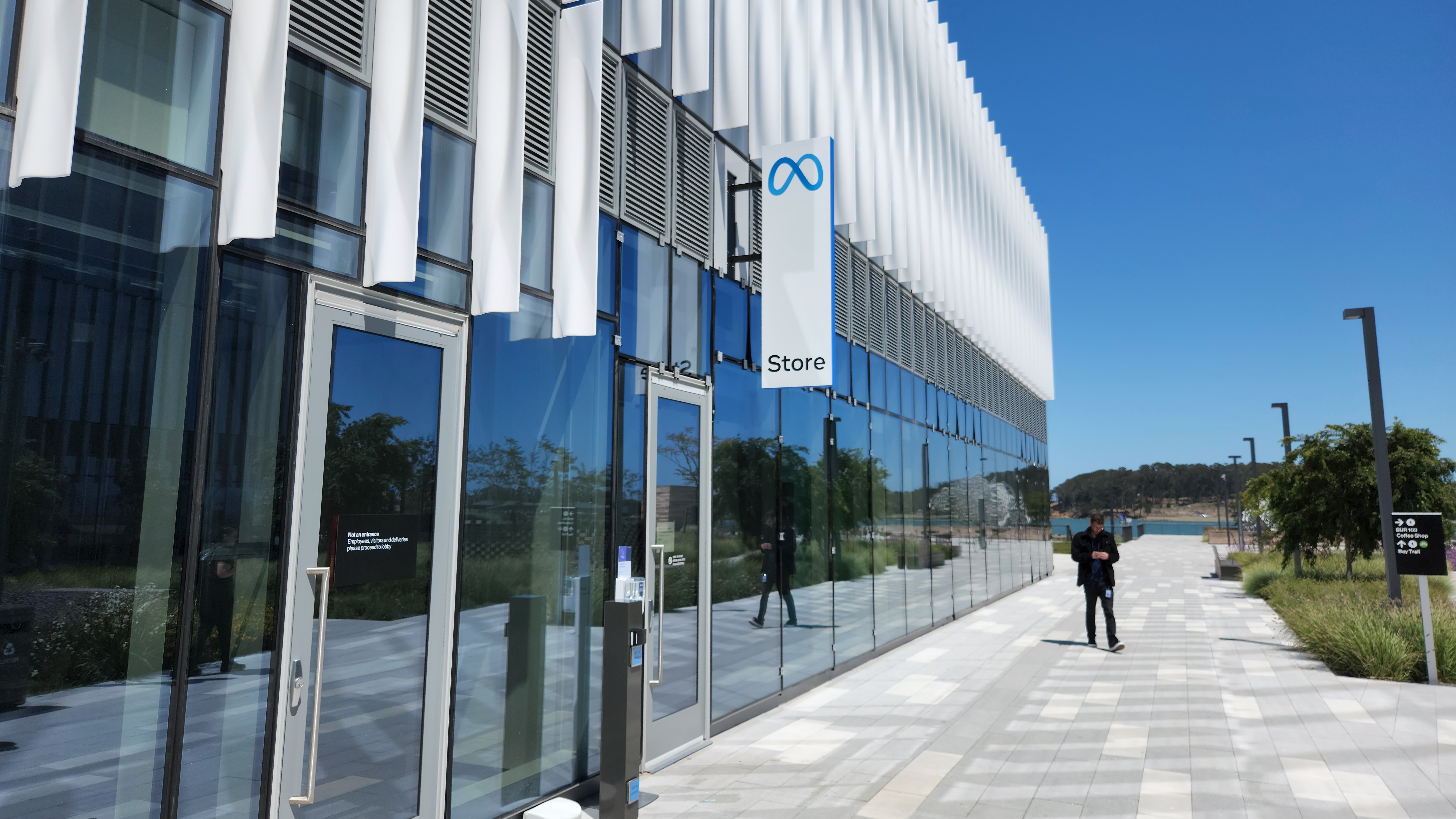
Get the latest news from Android Central, your trusted companion in the world of Android
You are now subscribed
Your newsletter sign-up was successful
Following in the footsteps of Apple, Amazon, Google, and Microsoft, Meta decided to launch its first retail store near the Reality Labs headquarters in Burlingame, California, with apparent plans to expand to new locations soon.
Whereas those competing brands can peddle familiar hardware to returning customers, the Meta Store has an uphill battle introducing smart glasses, VR, and the Meta brand itself to unfamiliar, unattached consumers.
I drove to the San Francisco Peninsula to see the Meta Store for myself during a media day, in advance of the store opening on May 9. And I found the experience utterly charming! The friendly, savvy employees gave accessible, informative demos of products, and I liked the unique look of the store.
That being said, I'm not sure whether it will be enough to make the Meta Store a popular destination, or who exactly the store is for.
Selling the Meta-verse brand
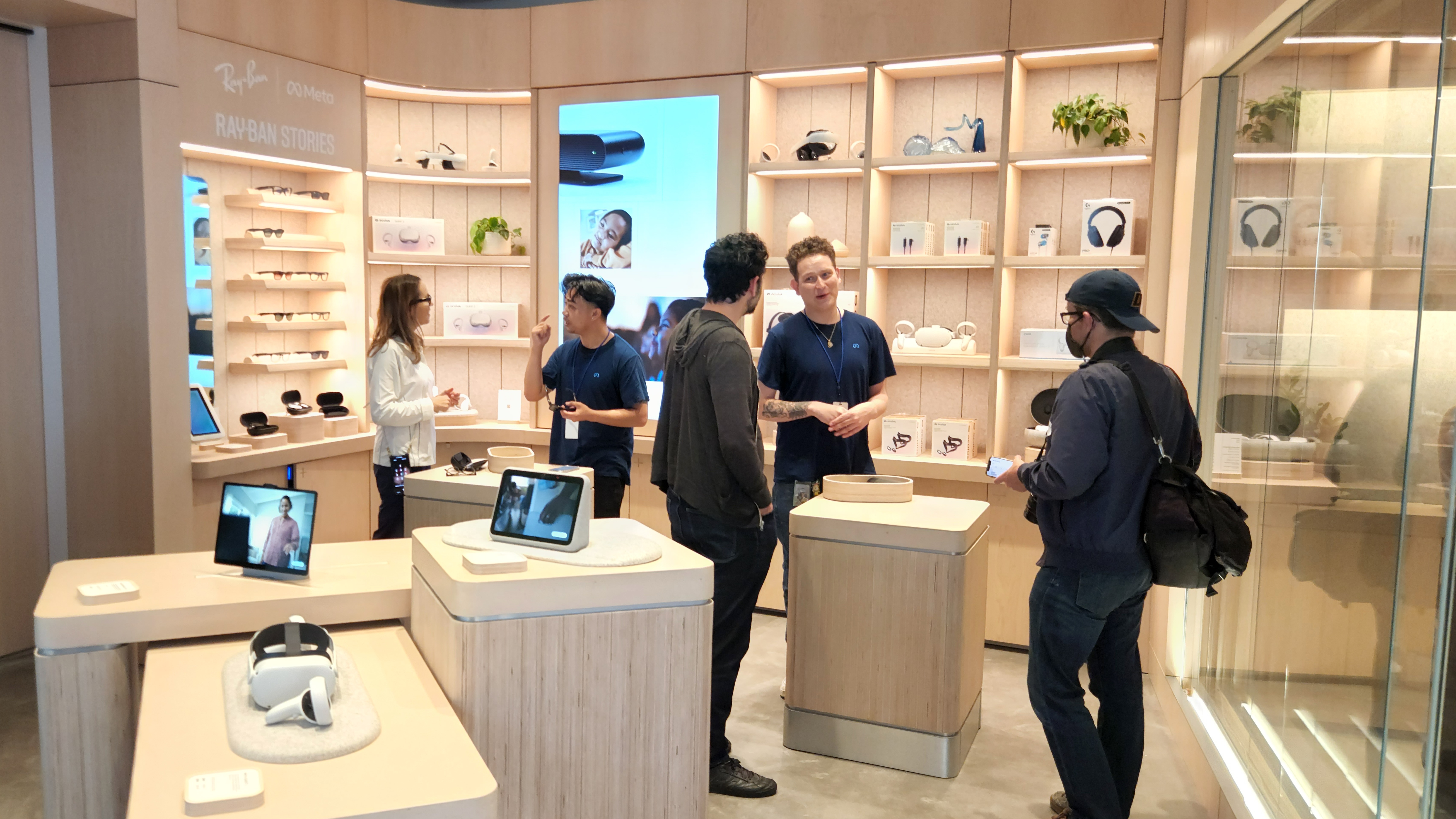
The Meta Store highlights four main products: the Meta Quest 2 virtual reality headset, Ray-Ban Stories smart glasses, and the Meta Portal+ and Portal Go smart displays. Aside from a bunch of Quest 2 accessories, that's the extent of what the store sells.
The obvious store highlight is the massive VR space where people can try out demos of Beat Saber, fitness game Supernatural, Real VR Fishing, or Golf+.
Each person gets a freshly sanitized Meta Quest 2 with a snug Elite Strap fit and a simple demo OS, so VR newbies don't get lost on the home screen. You can play for a few minutes while your friends or family see your efforts on the big screen next to you. Then the store will text you a 30-second mixed-reality clip of you sabering or fishing in a virtual world, so you can share it with friends.
Get the latest news from Android Central, your trusted companion in the world of Android
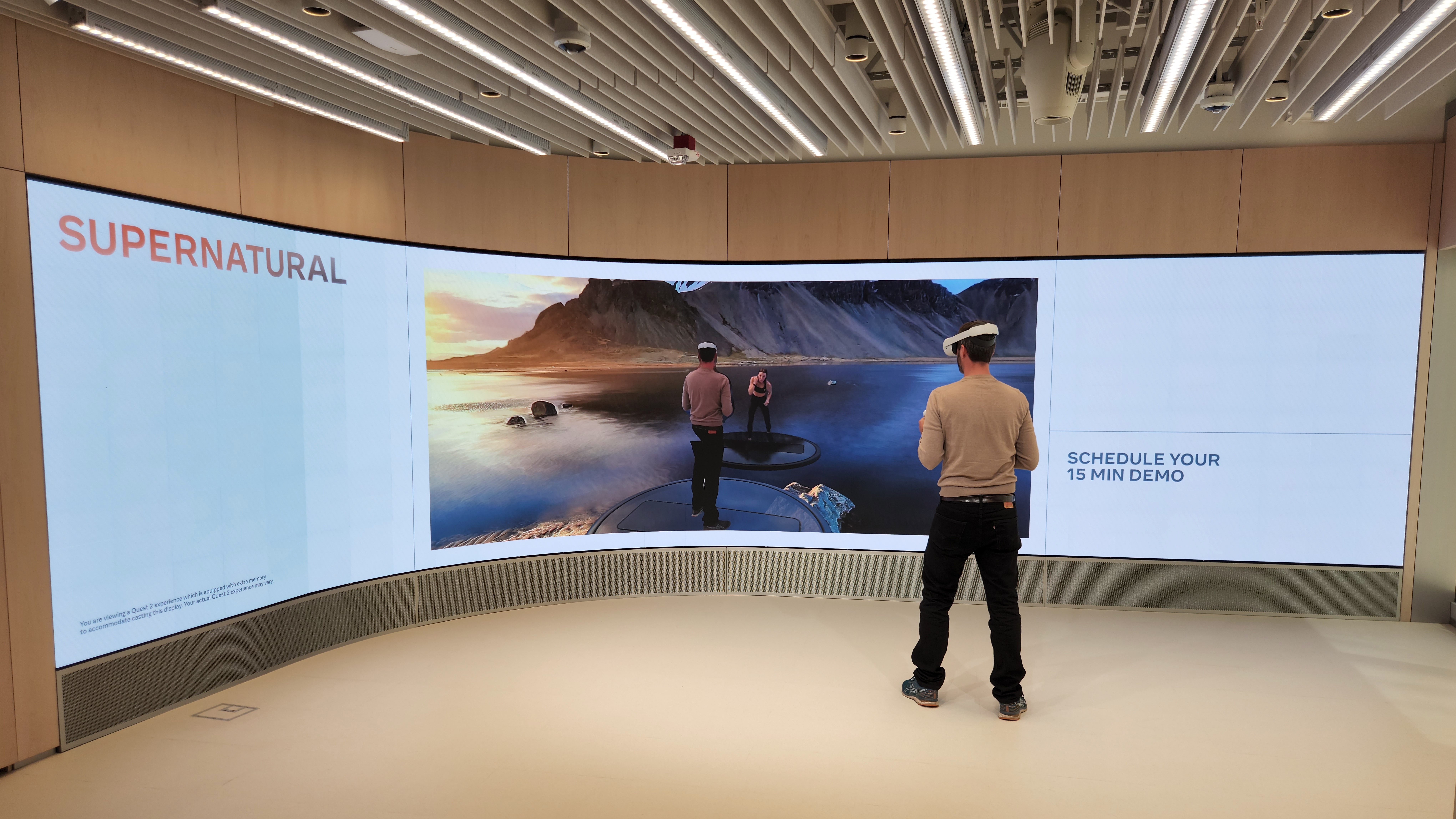
While I'm a VR veteran, I loved playing in a dedicated space where my cat can't get underfoot. More importantly, I heard other journalists exclaiming how cool their first Oculus Quest 2 experience was. This kind of space could really help sell non-techies on the idea of VR as something accessible as well as exciting.
Unfortunately, a demo takes about 15 minutes after onboarding, fitting the headset on, and then actually playing. Since the store is open 7 hours, that means just 28 people can try the Meta Quest 2 per day; of that number, half will be appointments and half walk-ons, which will further limit everyday people's ability to organically experience VR for the first time.
Considering none of the available experiences are roomscale, I'd prefer Meta to have squeezed two demo circles on the left and right of the space and split the footage across two screens. And in place of some of the pretty displays of Quest accessories, it could have built some small seated VR booths that would let more people experience Meta's killer product.
Maybe so many stations would be too much of a logistical nightmare, but my personal belief is that VR will get bodies in the store, not the other products.
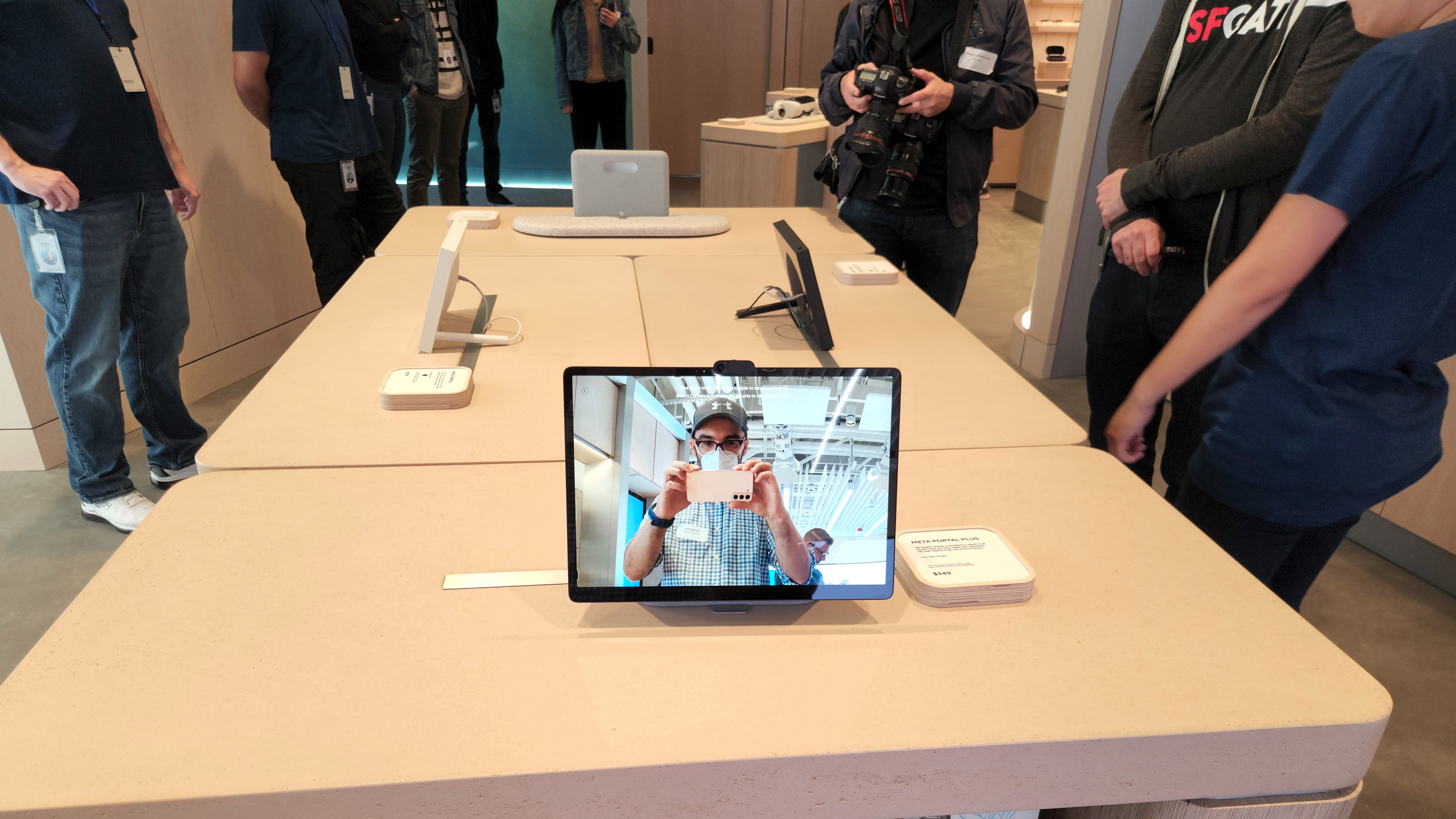
Instead, Meta dedicated the most floor space to its Portals, recently rebranded from Facebook Portal to shake off the bad publicity around the app's privacy policies.
Like the VR display wall, Meta Portal had its own dedicated testing room for guests to try out calling features, plus another private back room designed like an apartment where a store employee will answer your call and show off tools like AR effects and Smart Frame tracking. Again, these demos are as endearing as they are informative.
Besides that demo space, you can test out features on the Meta Portal+ and Portal Go throughout the rest of the store. And unlike an Apple Store where everything is wired to desks, you can actually pick up the Go or other objects as you test them. Though I don't think they'll let you don a Quest in the middle of the store and start flailing around blindly.
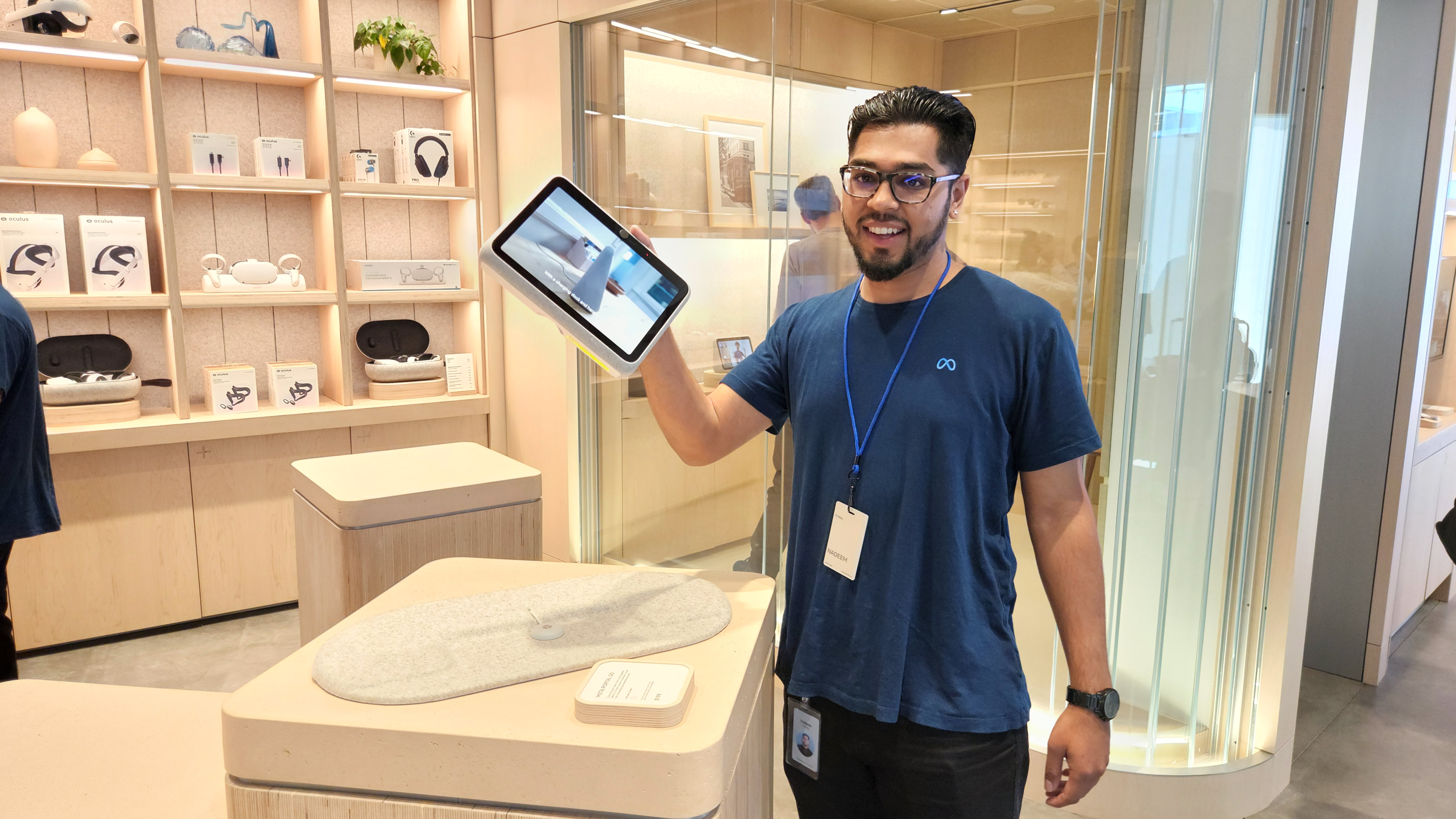
Lastly, you'll find a little Warby Parker-esque section in the corner with all the different Ray-Ban Stories frames to try. The staff will give you your own clean pair and guide you through a quick demo of their photo-taking and music-playing features.
As someone who wears glasses, I've never been fully sold on buying smart glasses I have to frequently take off and recharge, and that people may see as a violation of privacy. Despite my predilections, my short demo did help me see why people would find them useful.
How the Meta Store needs to grow
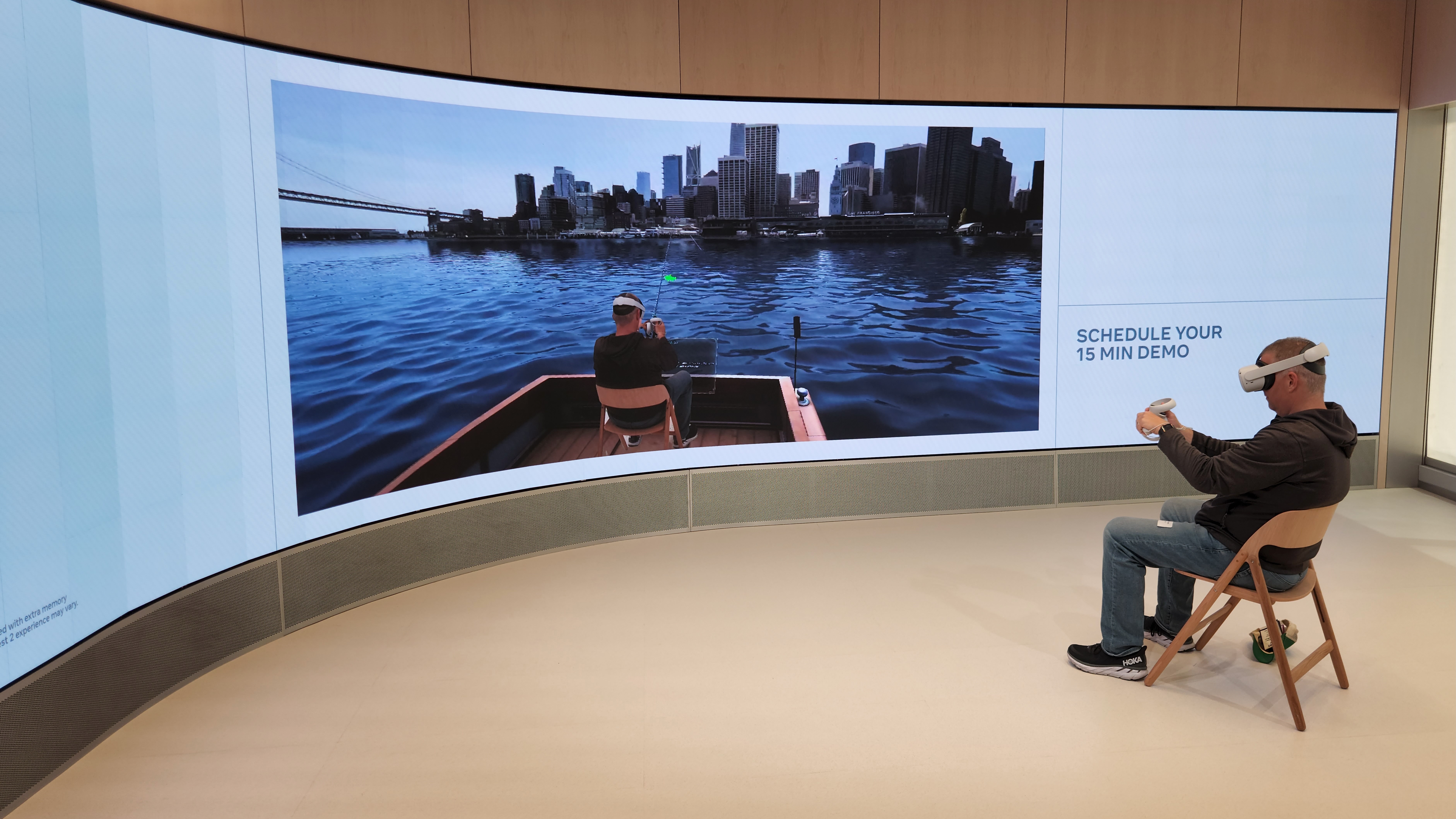
In my mind, the Meta Store would be perfect for the mall. Shoppers wandering by will spot the unfamiliar infinity logo, look inside, and see a massive Beat Saber display that draws them in. That's when the employees can give their friendly beginner demos that make VR and smart tech look appealing to an everyday person.
As charming as the campus Meta store is, it doesn't have the discoverability of Google's NYC location or a downtown Apple Store. Techies who aren't turned off by Facebook's history will make the Burlingame trek once, which could be enough to sell them on Meta hardware. But in terms of growing the brand with folks who don't read tech blogs, it'll need to invest in better real estate.
I'm not sure of the economics of an all-out retail strategy in 2022, considering the recent Amazon store closures. But you can argue it's apples and oranges: there's a big difference between a store that sells products you typically buy online and an idea-based store that'll spread brand awareness even if it doesn't shift as much stock.
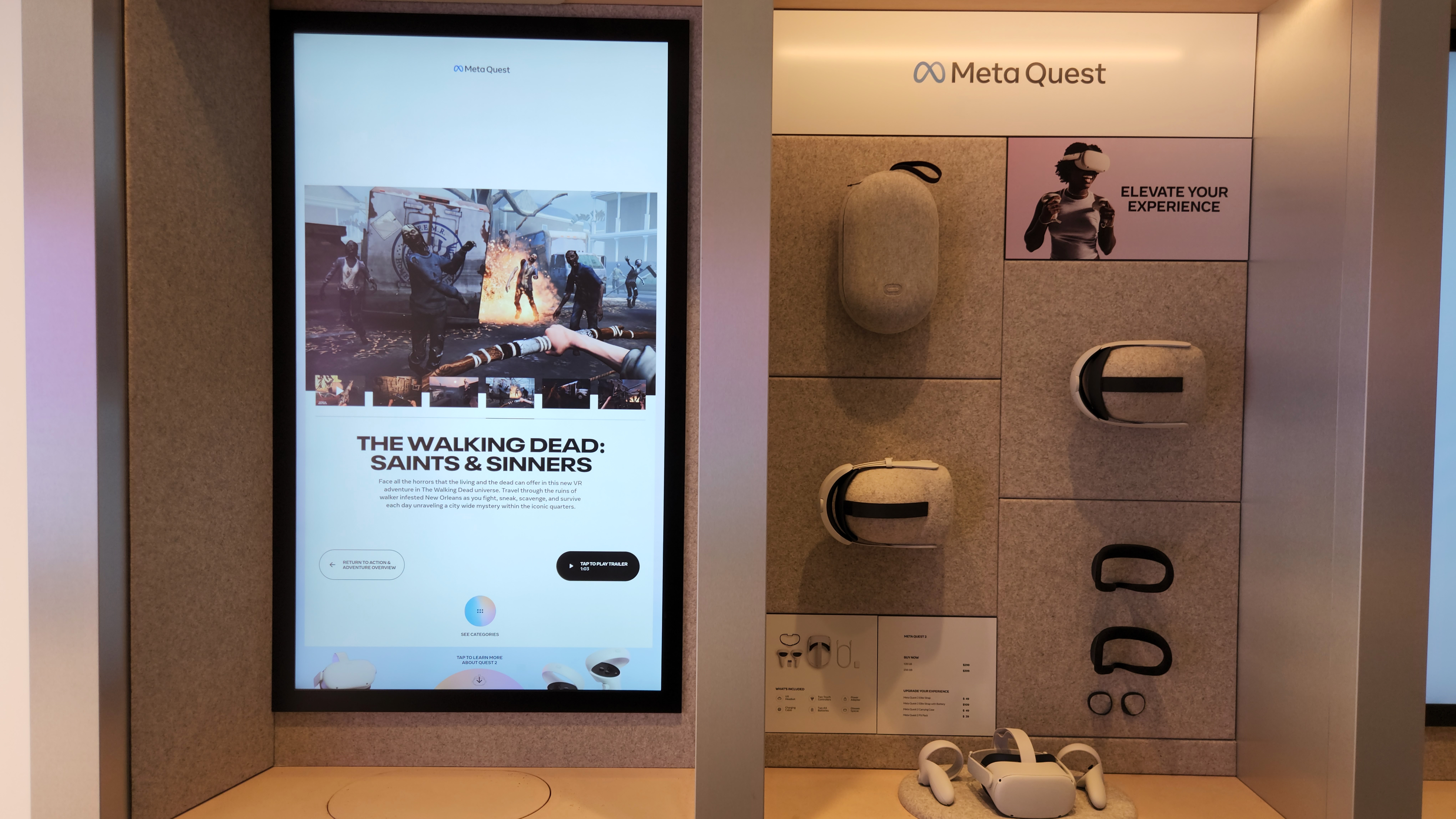
Meta sells lots of "you have to see it to believe it" tech against more established products and storefronts. And with plans for four new VR headsets by 2024 — as well as two AR glasses and a new Ray-Bans version by that year — it'll have all the more reason to establish physical presences to make its hardware more accessible.
If Meta wants to sell Project Cambria as a "laptop for your face," convince people to buy "tens of millions of smart glasses" as Zuckerberg allegedly hopes, and wash away the negative impressions still around after the Facebook rebrand, it makes sense to start growing a friendly retail presence now.
I don't know how well a demo-based store would scale to mall-quantity foot traffic, especially for VR demos. In my mind, I'd honestly rather Meta would get into the business of full AR/VR installations like VR World, where it can get a lot of people at once to try a series of the best Oculus Quest 2 games until they're tempted to buy a headset of their own.
Creating community spaces for AR and VR would help build the company's Metaverse brand better than a Portal-focused retail store.
But a hardcore gaming focus isn't what the Meta Store's about, and I'm probably not its target demographic. Still, at the very least, future spaces with more square footage could squeeze more VR demo spots in and leave all the Meta Portal and Ray-Ban demos around the waiting area to tempt people while they wait their turn.
If you live in Northern California and have some spare time, I'd genuinely recommend taking a trip to the Meta Store if you're in the area. Otherwise, I'm hoping Meta starts taking its wares nationwide.

Michael is Android Central's resident expert on wearables and fitness. Before joining Android Central, he freelanced for years at Techradar, Wareable, Windows Central, and Digital Trends. Channeling his love of running, he established himself as an expert on fitness watches, testing and reviewing models from Garmin, Fitbit, Samsung, Apple, COROS, Polar, Amazfit, Suunto, and more.
